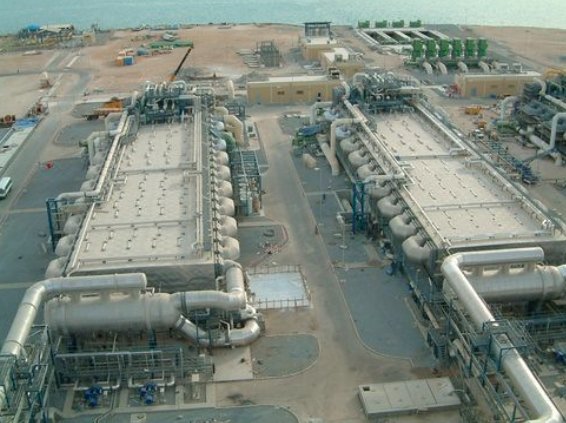Water desalination is a vital process that provides clean and safe water for millions of people around the world. However, it also has some negative impacts on the environment, such as high energy consumption, greenhouse gas emissions, and marine pollution. To address these challenges, a Scottish company has partnered with a global leader in green energy and water desalination to develop and promote “Green Desalination” technologies.
Scotmas and ACWA Power sign a Memorandum of Understanding
Scotmas, a global leader in chlorine dioxide-based water treatment systems based in the Scottish Borders, has signed a Memorandum of Understanding (MoU) with ACWA Power, a world-renowned developer, investor, and operator of power generation, desalination, and green hydrogen plants. The MoU commits the parties to further development of “Green Desalination” technologies that aim to reduce the environmental impact of water desalination and improve its efficiency and sustainability.
The MoU outlines the parties’ commitment to achieving UN Sustainable Development Goals 3, 6, and 14, centred around good health and well-being, clean water and sanitation, and life below water. The agreement reaffirms the importance of good environmental stewardship in water desalination and underscores the parties’ commitment to localised production of the key chlorine dioxide equipment and chemistry underpinning the technology.
Chlorine dioxide: a green alternative to chlorine gas
Chlorine dioxide is a powerful disinfectant that can kill bacteria, viruses, and other microorganisms in water. Unlike chlorine gas, which is commonly used in water treatment, chlorine dioxide does not react with organic matter in water to form harmful by-products, such as bromate and trihalomethanes. These by-products can pose health risks to humans and animals and damage the marine ecosystem.

Chlorine dioxide also has other advantages over chlorine gas, such as:
- It can be produced on-site using simple equipment and chemicals, reducing the need for transportation and storage of hazardous materials.
- It can penetrate biofilms and algae that can clog the membranes of desalination plants, improving their performance and lifespan.
- It can reduce the overall power consumption required by desalination membranes, lowering the carbon footprint of the process.
Scotmas is an innovation-driven specialist manufacturer of chlorine dioxide technologies that has helped lead the transition away from traditional gas chlorination disinfection to more sustainable chlorine dioxide-based systems. The company has over 20 years of experience in designing, installing, and operating chlorine dioxide systems for various applications, such as drinking water, wastewater, industrial water, and agriculture.
A global collaboration to make desalination more accessible and affordable
ACWA Power is a global leader in green energy and water desalination, with a portfolio of over 60 assets in 13 countries, delivering more than 42 GW of power and 5.8 million m3/day of desalinated water. The company is committed to working with leading innovators to make desalination and the wider green energy revolution more efficient, sustainable, and globally accessible.
The collaboration between Scotmas and ACWA Power will bring together academic expertise from Scotland and the Middle East to help make desalination technologies cheaper and more accessible to developing economies worldwide. The partnership will also leverage Scotmas’ expertise to develop local production of equipment and chemistry needed to ensure a steady and uninterrupted supply to desalination and water distribution facilities throughout the Middle East, further reducing the impact of transportation on the environment.
The water desalination process was developed at Glasgow University in 1960. Today, desalination contributes more than 90% of daily water requirements across the rapidly growing economies of the Arabian Gulf. The partnership between Scotmas and ACWA Power will help promote green desalination and encourage the adoption of the next generation of water treatment technology throughout the industry.


















